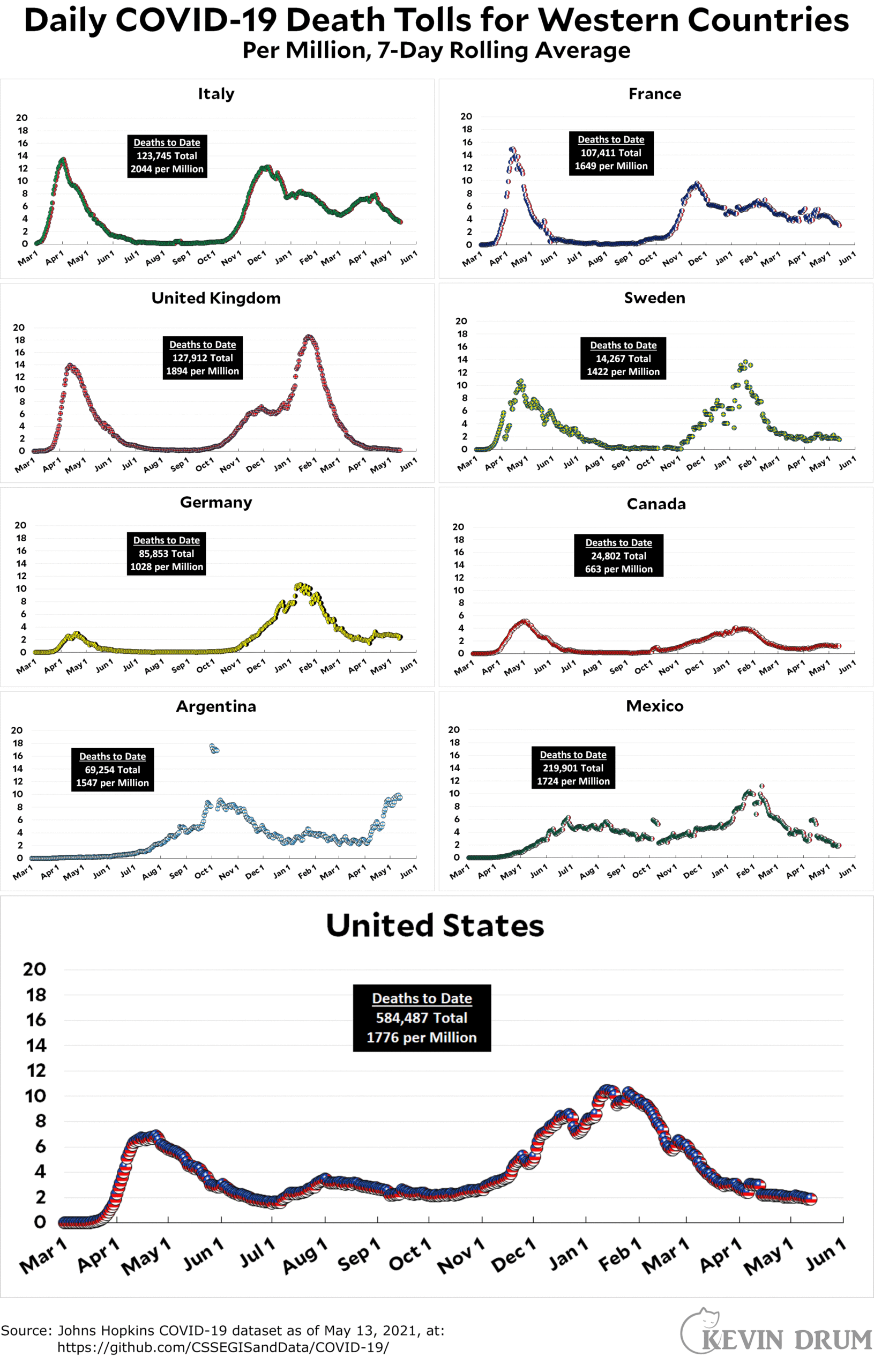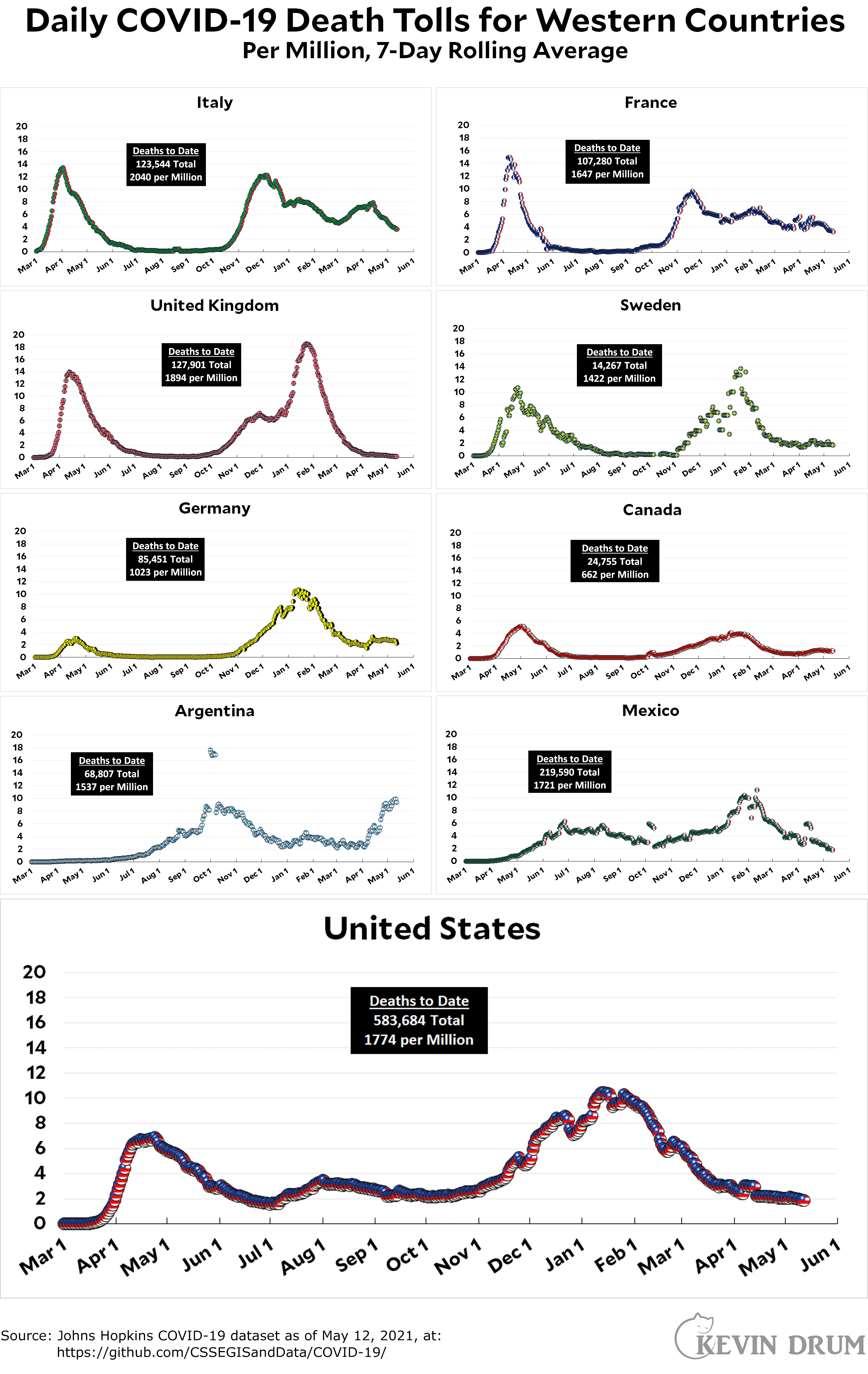I keep seeing stuff along these lines:
I have to say that my most frustrated and confused friends are the ones who "followed the science" and are now trying to figure out why the science has changed so drastically in the last 2 months
— PoliMath (@politicalmath) May 14, 2021
Am I crazy or is everyone else crazy? Nothing significant has changed about "the science" in the past two months—although we do have more data about how well the COVID vaccines work against all the variants floating around out there. (Pretty well, it seems.) Nobody has said otherwise.
What's changed is the circumstances. No one ever suggested that we'd wear masks forever, which means there was always going to be a day when the CDC would announce that it was OK for vaccinated folks to stop wearing them. That day would come when (a) the case count was dropping, (b) the vaccination rate had gotten sufficiently high, (c) real-world experience with the vaccines was convincingly positive, and (d) other indicators suggested that it was safe to drop the mask recommendation.
This is something of a judgment call, and there's nothing special about the day before or the day after. Nothing "suddenly" changed. Is this really so hard to understand?









